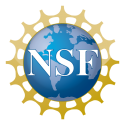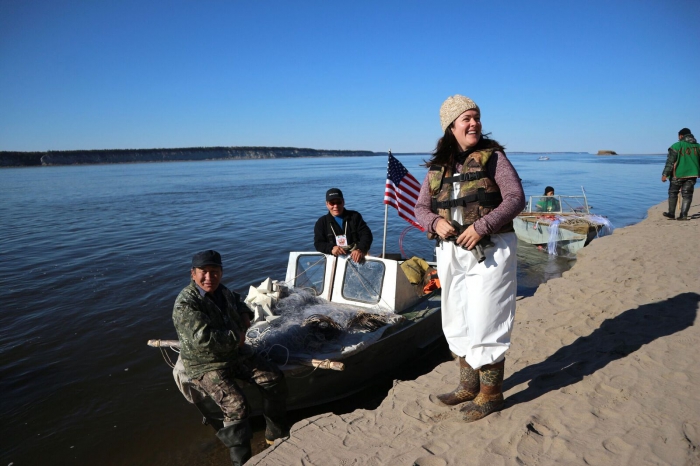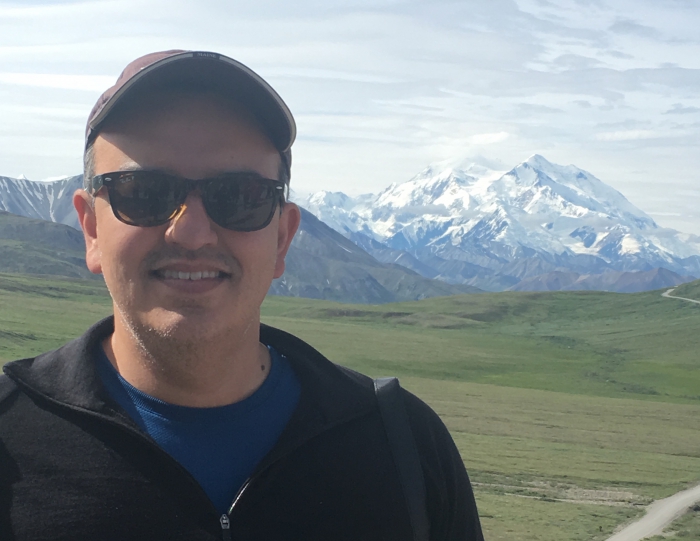
NSF Arctic Sciences Section Welcomes New Program Directors
The National Science Foundation has welcomed new staff to the Arctic Sciences Section and looks forward to working with them to advance Arctic science. The new staff includes Program Directors Colleen Strawhacker, Arctic Social Sciences and Arctic Systems Science; Gregory J. Anderson, Arctic Systems Sciences; and Roberto Delgado, Arctic Observing Network. A full list of the Arctic Science Section staff and contact information is available on the staff directory page. Introductory summaries of two of the new Program Directors, Colleen Strawhacker and Roberto Delgado, are highlighted below.

Colleen Strawhacker is the associate program director for the Arctic System Sciences Program (ARCSS) in the National Science Foundation's Office of Polar Programs. She is serving on a Visiting Scientist rotator appointment while on leave from the National Snow and Ice Data Center at the University of Colorado Boulder. She earned her doctorate in anthropology from Arizona State University in 2013, where she focused on the archaeology of climate-driven risk and vulnerability in the U.S. Southwest and the North Atlantic. She has expertise in the social sciences, convergent research spanning the natural and social sciences and engineering, and cyberinfrastructure. As well as co-managing the Arctic System Sciences Program, she is the lead program officer for the Arctic Social Sciences Program (ASSP). She may be reached at her office at 703.292.7432 or via email at colstraw [at] nsf.gov.

Roberto Delgado is the program director for the Arctic Observing Network (AON) in the National Science Foundation's Office of Polar Programs (OPP). He comes to OPP's Arctic Sciences Section from the National Institutes of Health, where he served as a program chief; co-led the Interagency Arctic Research Policy Committee (IARPC) Health and Wellbeing Collaboration Team; coordinated the Arctic Council's RISING SUN initiative; and managed contracts, cooperative agreements, and research grants focused on resilience and well-being among rural, global, Arctic, and American Indian and Alaska Native communities. He earned his doctorate in biological anthropology and anatomy (now evolutionary anthropology) from Duke University, with expertise in evolutionary ecology, terrestrial ecosystems, and wildlife biology. He also previously held research faculty positions at Hunter College of the City University of New York and the University of Southern California. In addition to directing AON, he also is involved in NSF's Navigating the New Arctic Big Idea. He may be reached at his office at 703.292.2397 or via email at robdelga [at] nsf.gov.
NSF Announces New Measures to Protect the Research Community from Harassment
In its agency-wide effort to ensure the research and learning environments it supports are free from harassment, NSF has published a term and condition for awards that requires awardee organizations to report findings and determinations of sexual harassment, as well as establishing a secure online portal for submitting harassment notifications.
The term and condition published on 21 September 2018, to become effective 30 days after publication, will require awardee organization to notify the agency of:
- Any findings or determinations that an NSF-funded principal investigator or co-principal investigator committed harassment, including sexual harassment or sexual assault.
- The placement of the principal investigator or co-principal investigator on administrative leave, or of the imposition of any administrative action relating to a harassment or sexual assault finding or investigation.
It is NSF policy that all personnel supported by NSF awards must comport themselves in a responsible and accountable manner during the award performance period at awardee institutions, field sites, facilities, conferences, workshops, online, and everywhere NSF-funded science and education is conducted.
For details on the new requirements, see the NSF fact sheet.
